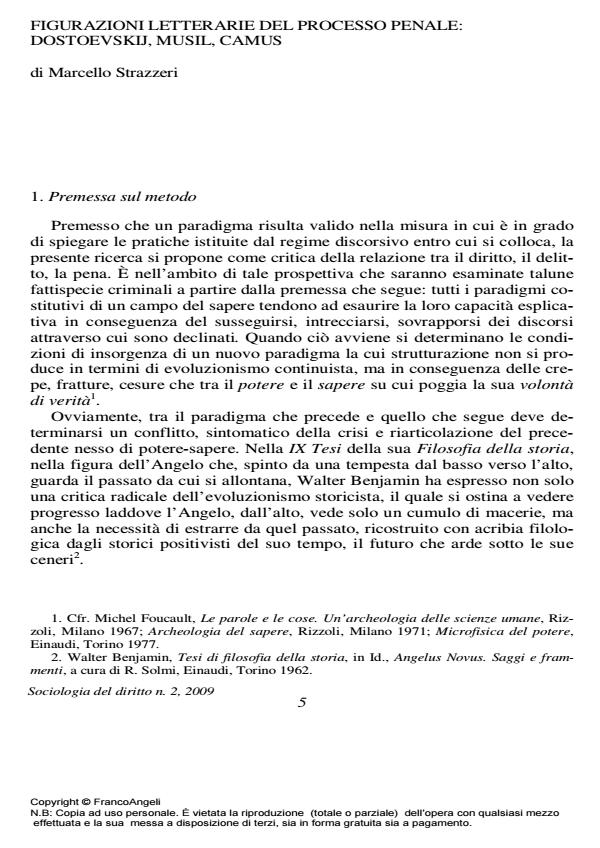Figurazioni letterarie del processo penale: Dostoevskij, Musil, Camus
Journal title SOCIOLOGIA DEL DIRITTO
Author/s Marcello Strazzeri
Publishing Year 2009 Issue 2009/2 Language Italian
Pages 21 P. 5-25 File size 334 KB
DOI 10.3280/SD2009-002001
DOI is like a bar code for intellectual property: to have more infomation
click here
Below, you can see the article first page
If you want to buy this article in PDF format, you can do it, following the instructions to buy download credits

FrancoAngeli is member of Publishers International Linking Association, Inc (PILA), a not-for-profit association which run the CrossRef service enabling links to and from online scholarly content.
Literary figures in the Criminal Trial: Dostoevsky, Musil and Camus - This research sets out to verify the plausibility of certain writings in literature, in particular Dostoevsky’s Crime and Punishment, Musil’s The Man without Qualities and The Stranger by Camus, as critiques of how the law relates to crime and punishment. Using Elias’ figurational theory, cross-fertilised with the writings of Foucault, the author considers literature because it is capable of visualising and declaring the relationship’s complexity, the construction and practical declension of legal paradigms and the problematic juncture between law in force and living law. As a result, he illustrates how the story told by Dostoevsky in Crime and Punishment, in which he defends criminal responsibility as a primary subjective responsibility against all forms of bio-psychic and statistical-social determinism, can make a major contribution to today’s criminological debate. Similarly, the interrelated fortunes of the two main characters in Musil’s novel, Ulrich and Moosbrugger, the man without qualities and the criminal awaiting sentence, join with those of the chorus of characters from Viennese society that provide the backdrop to the tale to question the legal concept of mental infirmity. Lastly, The Stranger features the mechanism of the "pre-judicial" construction of guilt, in the course of legal proceedings that aim to demonstrate chronological continuity between the personality of the accused and the commission of the criminal act.
Marcello Strazzeri, Figurazioni letterarie del processo penale: Dostoevskij, Musil, Camus in "SOCIOLOGIA DEL DIRITTO " 2/2009, pp 5-25, DOI: 10.3280/SD2009-002001